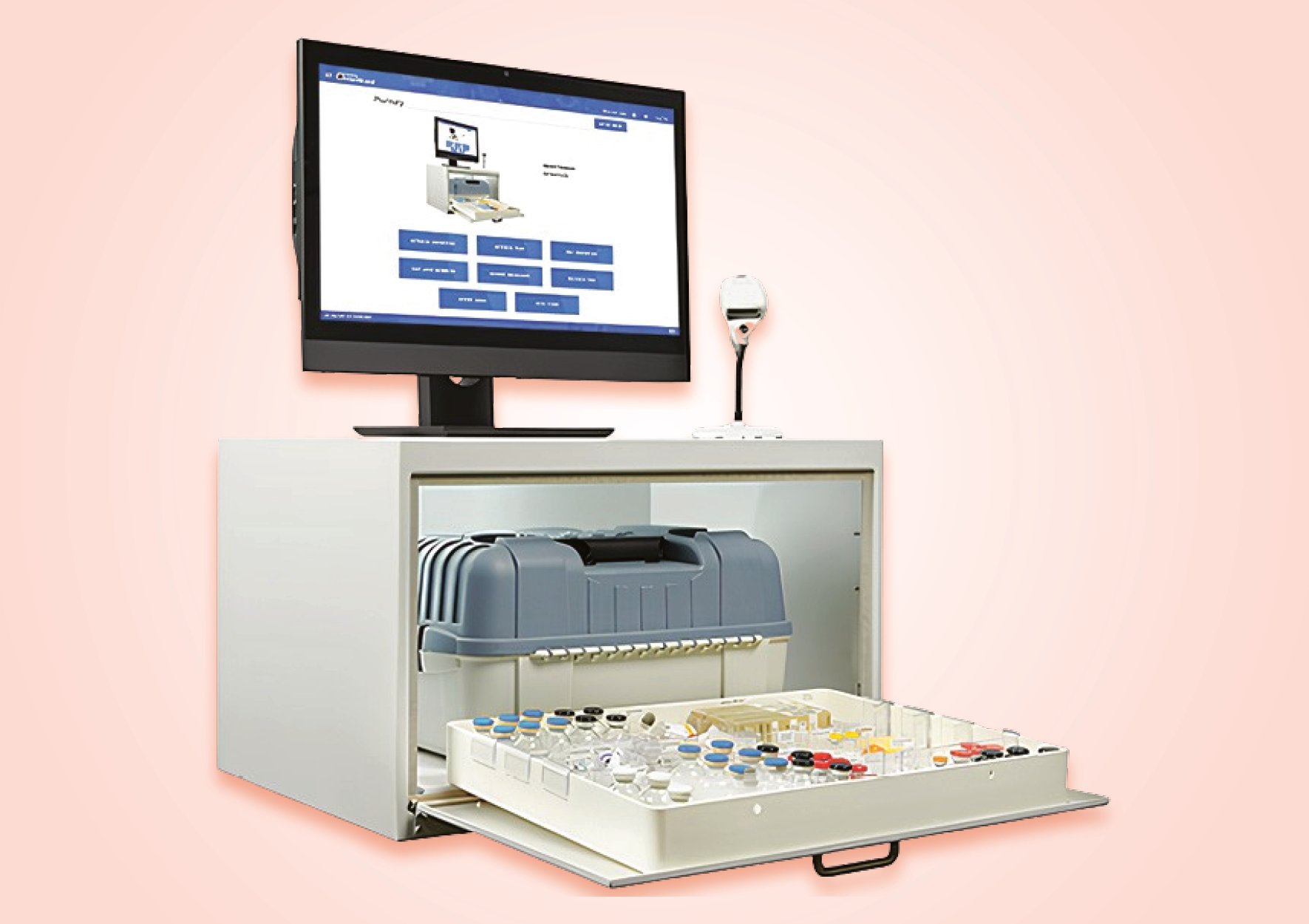- Show Menu
- Contact Us
- FAQs
- Reader Service
- Survey Data
- Survey Winners
- Testimonials
- Upcoming Events
- Webinars
- White Papers
Advanced Role for Technicians: MAP Specialist
The role of the Medication Assistance Program (MAP) specialist was introduced in a previously published article discussing the University of North Carolina (UNC) Medical Center’s pre-certification process (see www.pppmag.com/article/2402).2 UNC MAP specialists are certified pharmacy technicians who assist in navigating barriers to drug access, including performing drug pre-certification and obtaining financial assistance for high-cost medications. The position allows technicians to elevate their practice and skill sets by performing a role that has not traditionally existed within pharmacy. As departments of pharmacy assume ownership of these access-to-care responsibilities, it is critical to consider what skills and prior experience would allow a technician in this position to be successful.
Develop a MAP Specialist Job Description
Establishing a clearly defined job description is the first step to ensuring that the MAP position appeals to qualified, high-performing candidates. The MAP specialist job description presented in the FIGURE outlines key responsibilities and required skills for this role. For MAP specialists involved in the medical benefit precertification process, their primary role is to navigate the first two steps of the medical benefit precertification process2:
- Perform a medical benefits investigation to determine the patient’s health insurance plan’s expected coverage and out-of-pocket responsibility
- Obtain drug prior authorizations, which involves seeking relevant clinical information to facilitate submission of prior authorization requests and then tracking them through to completion

Click here to view a larger version of this Figure
It is also crucial to support patients in enrolling in manufacturer-sponsored patient assistance programs.
While the following job description focuses on MAP specialists involved in the medical benefit precertification process, the description can be tailored to fit a variety of roles within a larger program. For example, MAP specialists can be responsible for supporting prescription benefit services by overseeing prior authorizations, copay assistance, and manufacturer assistance program enrollment. The same reporting relationships, required skills and attributes, and experience apply for these roles, regardless of the operational responsibilities, as the mission to navigate drug access barriers and mitigate patient and institutional financial toxicity persists.
MAP Specialist Qualifications
Ideal candidates for these positions will demonstrate skill in handling a variety of complex job responsibilities. Strong verbal communication is a key attribute, as MAP specialists are in continual contact with providers, pharmacists, pharmacies, payers, and patients. Clear and concise documentation skills are also necessary, given that MAP specialists are responsible for thorough, accurate reporting of all interactions in the EHR. Additionally, it is important for candidates to demonstrate critical thinking skills, professional maturity, and autonomy in the workplace. Since MAP specialists do not work under the direct supervision of a pharmacist within an operational area, independent decision-making and ability to triage issues as appropriate are crucial skills. Furthermore, MAP specialists must be flexible and adaptable to changes in workflow and procedures due to the dynamic nature of their daily work.
It is a departmental requirement at UNC Medical Center that pharmacy technicians be nationally certified to be considered for this role. Moreover, the institution offers technicians several continuing education opportunities to maintain their certifications. The certification requirement allows candidates with a baseline understanding of pharmacy operations to enter into any technician-based role in the department. Although candidates may not have prior experience with medication assistance or the payer navigation processes, we have found that any previous exposure to the field of pharmacy allows them better insight into the medication-use process and how their role fits into the larger picture.
Justifying the MAP Position
After creating the job description, the next step in securing support for the MAP specialist role is communicating its value. At UNC Medical Center, MAP specialists have proven integral to the institution by facilitating timely patient access to affordable medications through the closed-loop prior authorization and copay assistance structure aligned with the in-house specialty pharmacy. The in-house specialty pharmacy has leveraged the MAP specialist role to increase prescription capture by providing high-quality hub services—similar to market competitors, including completing prior authorizations, enrolling patients into assistance programs, completing appeal letters, and coordinating communication with providers. The MAP specialist role improves fiscal management by enrolling patients into manufacturers’ free drug programs rather than having these costs absorbed by the institution or passed along to the patient. Additionally, we have found that there is a direct correlation between the MAP specialist completing medical benefit precertifications and maximizing outpatient infusion revenue. For example, due largely to the work of these employees, institutional revenue write-off for UNC Medical Center related to denied outpatient infusion claims is <1%.
In addition to the financial value that MAP specialists deliver, they also provide high-quality customer service. As payer-mandated requirements have become increasingly taxing for providers and clinic support staff, MAP specialists now serve as the experts in this area. By reducing the administrative burden of navigating these requirements, MAP specialists have improved provider satisfaction at UNC. Providers now spend less time focusing on medication access issues and devote more attention to clinical activities and patient care.
Conclusion
As health system pharmacy departments consider building a Medication Assistance Program, developing a job description and clearly defining the role of a MAP specialist is essential to facilitate successful recruitment of candidates. Due to the specialized nature of the MAP specialist job duties, as well as the significant financial responsibility involved, employing certified pharmacy technicians in this role allows them to elevate their skills while practicing at the top of their license.
As seeking payer reimbursement and navigating medication access become increasingly complex, MAP specialists will be prepared and equipped to take on more advanced roles, progressing in their careers while providing value to patients and the institution alike.
References
- American Society of Health-System Pharmacists. Advanced Pharmacy Technician Roles.www.ashp.org/Pharmacy-Technician/About-Pharmacy-Technicians/Advanced-Pharmacy-Technician-Roles. Accessed June 21, 2019.
- Jean SJ, Francart SJ, Amerine LB. Implement pharmacy-managed pre-certification. Pharm Purch Prod. 2019;16(6):2,4.
 Stephanie J. Jean, PharmD, MS, BCPS, is a health-system pharmacy administration resident at the University of North Carolina (UNC) Medical Center in Chapel Hill, North Carolina. She earned her Doctor of Pharmacy from the UNC Eshelman School of Pharmacy and her MS with an emphasis in health-system pharmacy administration from the UNC Eshelman School of Pharmacy.
Stephanie J. Jean, PharmD, MS, BCPS, is a health-system pharmacy administration resident at the University of North Carolina (UNC) Medical Center in Chapel Hill, North Carolina. She earned her Doctor of Pharmacy from the UNC Eshelman School of Pharmacy and her MS with an emphasis in health-system pharmacy administration from the UNC Eshelman School of Pharmacy.
 Suzanne J. Francart, PharmD, BCPS, is the assistant director of pharmacy for the medication assistance program and pharmacy revenue integrity at the UNC Medical Center. She earned her Doctor of Pharmacy from the Virginia Commonwealth University School of Pharmacy, then completed a PGY1 general practice residency and PGY2 pharmacotherapy specialty residency at UNC Hospitals.
Suzanne J. Francart, PharmD, BCPS, is the assistant director of pharmacy for the medication assistance program and pharmacy revenue integrity at the UNC Medical Center. She earned her Doctor of Pharmacy from the Virginia Commonwealth University School of Pharmacy, then completed a PGY1 general practice residency and PGY2 pharmacotherapy specialty residency at UNC Hospitals.
 Lindsey B. Amerine, PharmD, MS, BCPS, is the interim regional director of pharmacy at the UNC Medical Center and Chatham Hospital and an associate professor of clinical education for the division of practice advancement and clinical education at the UNC Eshelman School of Pharmacy in Chapel Hill, North Carolina.
Lindsey B. Amerine, PharmD, MS, BCPS, is the interim regional director of pharmacy at the UNC Medical Center and Chatham Hospital and an associate professor of clinical education for the division of practice advancement and clinical education at the UNC Eshelman School of Pharmacy in Chapel Hill, North Carolina.
Like what you've read? Please log in or create a free account to enjoy more of what www.pppmag.com has to offer.








